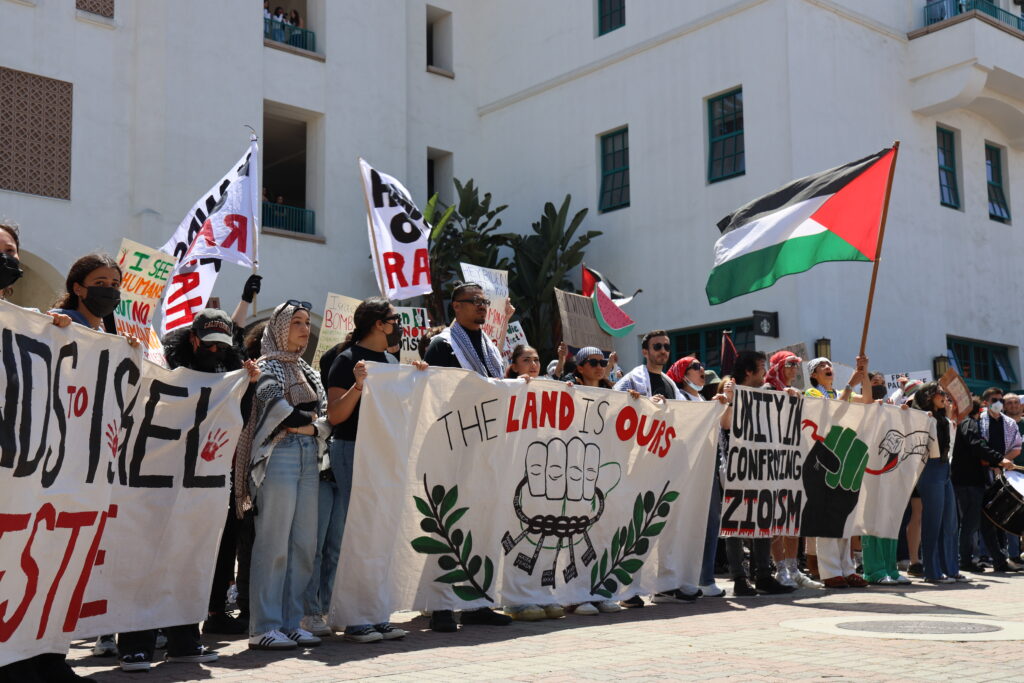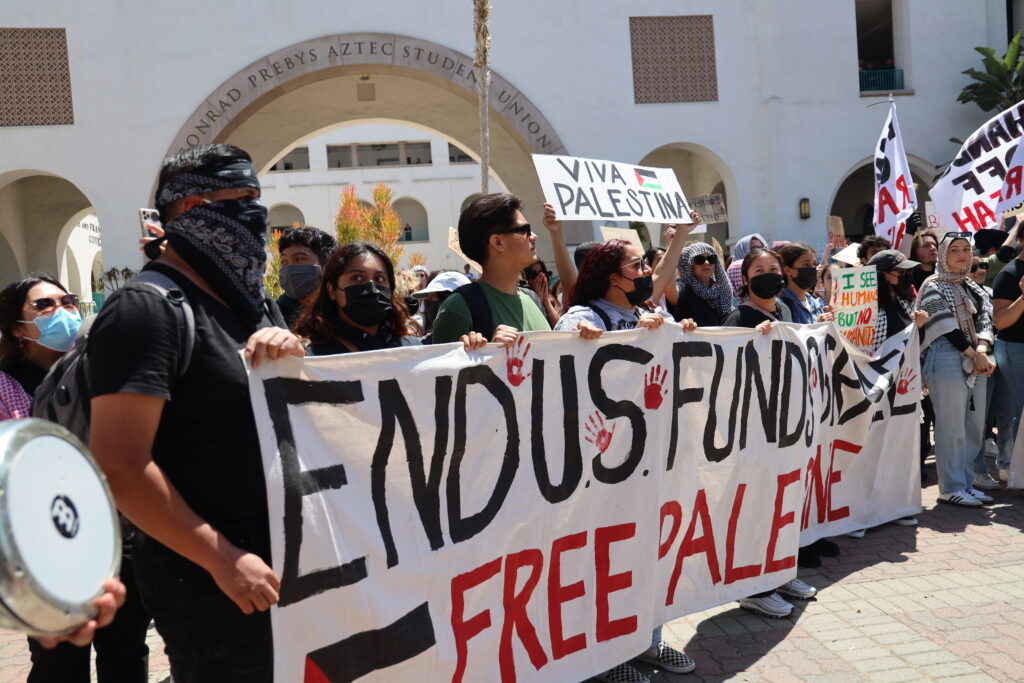
Hundreds of San Diego State students protest in support of Palestinians on April 30, 2024.
Credit: Jazlyn Dieguez / EdSource
The University of California disclosed Tuesday that it has $32 billion invested in assets that pro-Palestinian protesters demand the university divest, including weapons manufacturers that sell to Israel.
The university, however, has no plans to sell off those assets, despite the recent protests and encampments across the UC system, a spokesperson reiterated Tuesday.
The system’s chief investment officer, Jagdeep Singh Bachher, outlined the investments during a meeting Tuesday of the investments committee for UC’s board of regents. Bachher’s list responded to specific demands from the protesters and included broader investments in U.S. Treasuries, which he added in response to the request that UC divest from assets that support Israel. “The answer to that question is the U.S. government,” he said, referring to the aid and weapons that the government sends to Israel.
The full list of investments include:
- $3.3 billion in weapons manufacturers
- $12 billion in U.S. Treasuries
- $163 million in BlackRock, an asset manager that owns shares of companies that support Israel
- $2.1 billion in investments managed for UC by BlackRock
- $8.6 billion in the investment firm Blackstone, also targeted by protesters
- $3.2 billion in 24 other companies targeted by protesters, including Coca-Cola and Disney
“So if I interpret the questions and the responses mathematically with numbers, the letter sent to us would suggest that we should sell $32 billion of assets out of the $175 billion,” Bachher said, referring to the system’s entire investment portfolio.
The investments committee took no action toward divestment Tuesday, nor did it suggest they were considering doing so.
When reached Tuesday, a spokesperson for the system also said UC stands behind its April 26 statement opposing the idea of divestment.
“The University of California has consistently opposed calls for boycott against and divestment from Israel,” UC said at the time. “While the University affirms the right of our community members to express diverse viewpoints, a boycott of this sort impinges on the academic freedom of our students and faculty and the unfettered exchange of ideas on our campuses.”
Demands for UC and other universities to divest from Israel have heightened in recent weeks as pro-Palestinian encampments and protests have swept the country since last month, including at UCLA and other UC campuses.
Driving the encampments are calls for divestment from companies doing significant business with Israel. The protesters see universities as complicit in Israel’s war in Gaza. More than 35,000 people have been killed in Gaza, including many women and children, according to health authorities. Israel’s bombardment of Gaza followed the Oct. 7 Hamas attack on Israel, which killed about 1,200 people.
Tuesday’s financial disclosures followed a lengthy public comment period in which many commenters called on UC to divest.
“I wanted to emphasize my support for the Palestinian encampment students and faculty and to strongly support their call for divestment from all investments in the military industrial complex,” said Darlene Lee, a faculty member in UCLA’s teacher education program and a UCLA alum. “Educational funds should go towards education and community and not war.”
Calls for UC to divest are likely to continue Wednesday, when the regents will convene for the second of their three-day meeting at UC Merced. Ahead of the regents meeting, protesters at UC Merced set up a pro-Palestinian encampment on the campus, making Merced the latest of UC’s 10 campuses to establish such an encampment.
In a statement posted on Instagram, organizers of the encampment wrote that they are demanding UC to divest, call for a ceasefire in Gaza and end ties with Israel, including study-abroad programs.
“The UC regents are meeting on our campus. … They will hear us!,” the organizers wrote.


